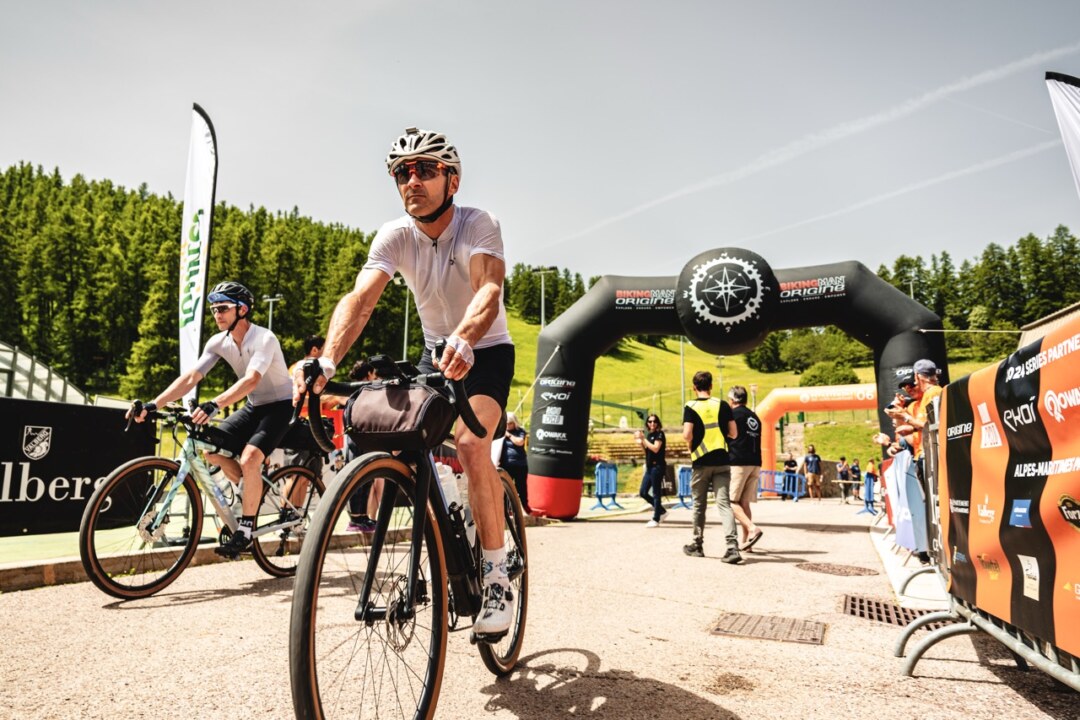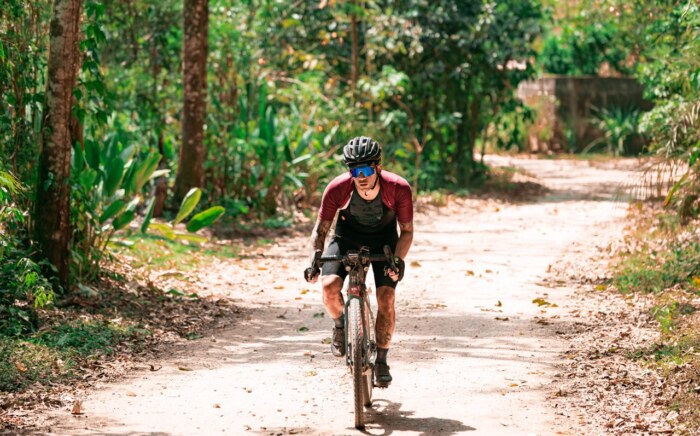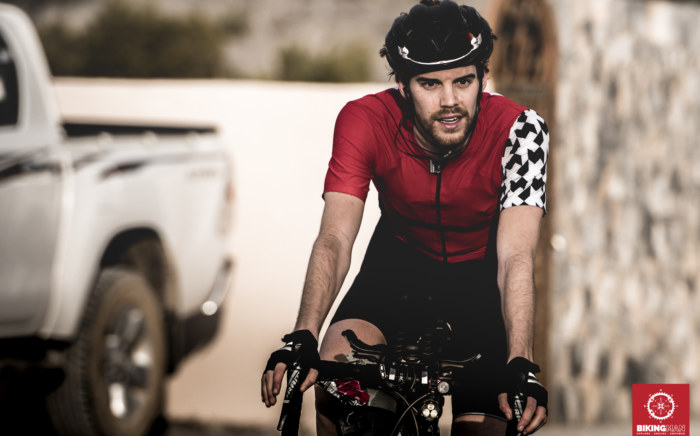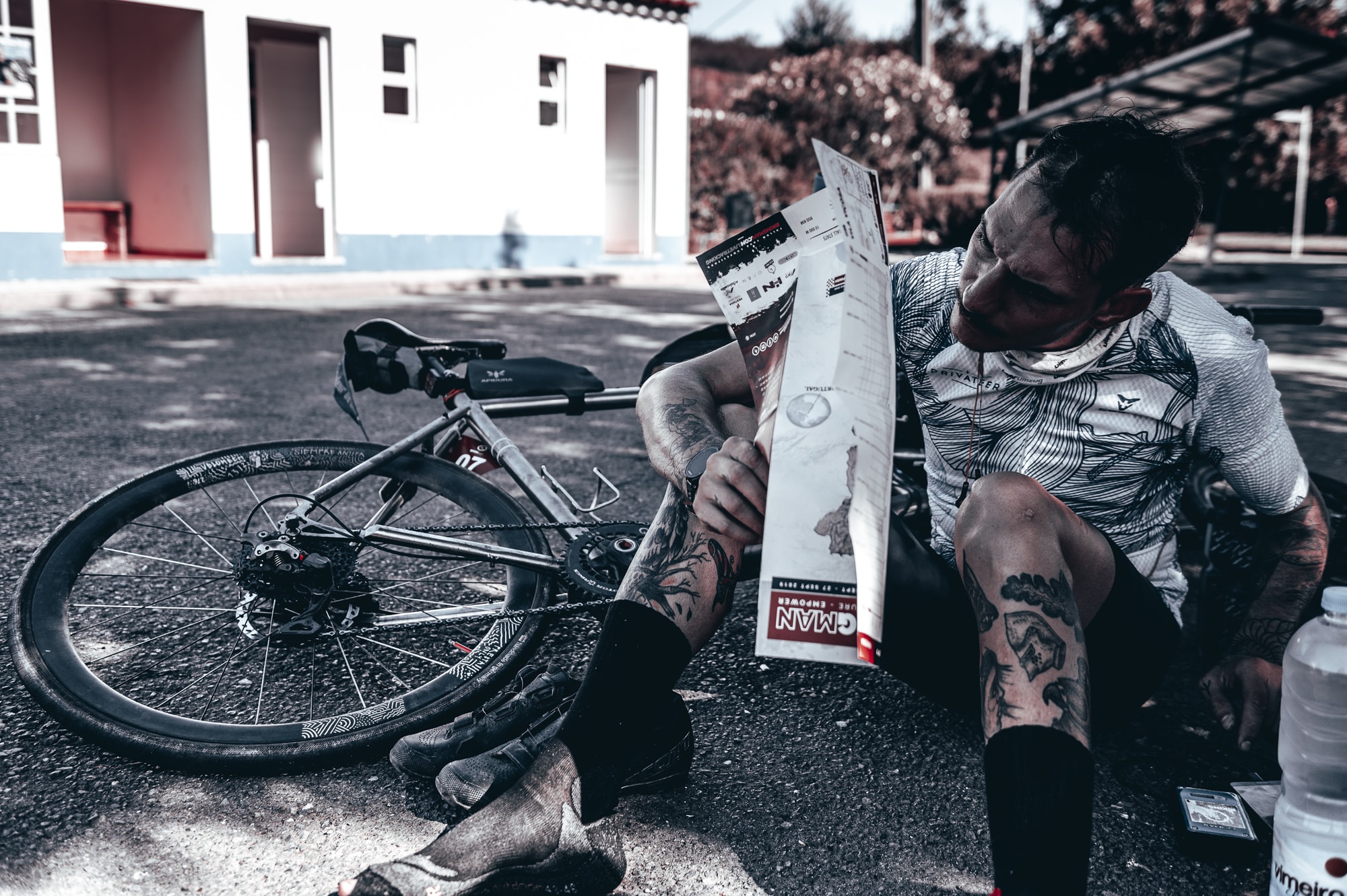Axel Carion, founder of BikingMan, shares insights into the 9 most frequent mistakes participants make in ultracycling. Based on his experience across more than 14 races, this advice is designed to better prepare athletes and help them avoid pitfalls that could compromise their performance.
1. Skipping biomechanical preparation
- The importance of bike fitting: The first mistake is neglecting proper bike positioning, including cleat, saddle, and handlebar adjustments. Poor alignment can lead to knee pain and tendinitis.
- A participant’s story: Axel recounts the example of Gustavo, a well-trained rider who had to drop out of BikingMan Peru due to untested shoes and cleats. He recommends a biomechanical assessment with an expert to ensure comfort and performance.
2. Not testing clothing in real conditions
- Risks of untested gear: Axel highlights that an unsuitable bib short or outfit can cause severe irritation, especially after several days of intense effort.
- A concrete example: Georgina’s experience at BikingMan Taiwan, where she had to abandon due to a new, untested bib short, underscores this point. Axel advises using anti-chafing creams to reduce irritation, particularly in hot or humid climates.
3. Lack of mechanical skills
- The importance of repair knowledge: A mechanical issue (puncture, bent derailleur, worn brake pads) can force a rider to quit if they lack the skills to fix it. Axel recommends attending repair workshops to learn how to handle mechanical problems.
- Simple equipment: Choosing a bike with minimal complex technology simplifies on-the-go repairs. Experienced cyclist Laurent Boursette suggests prioritizing simplicity to reduce stress in case of technical issues.
4. Poor GPS navigation skills
- Learning to use GPS: Many cyclists use advanced GPS devices without proper testing. Axel warns that a poorly used GPS can cause confusion and lead to withdrawal.
- Resetting your GPS: Knowing how to reboot your GPS and clear old routes is essential to prevent glitches. This preparation helps minimize stress and maintain focus during the race.
5. Neglecting hydration and nutrition management
- Understanding nutritional needs: Axel emphasizes the importance of knowing your calorie and hydration requirements before the race. Proper hydration is critical for avoiding dehydration and maintaining energy levels.
- Planning energy refuels: Carry a 1.5-liter water reserve and test your nutritional needs during training to prevent energy crashes or hunger during the race.
6. Failing to ensure visibility and avoiding the “ninja effect”
- Wearing reflective gear: Cyclists dressed in black without adequate lights are referred to as “ninjas.” Axel reminds participants that nighttime visibility is crucial. Adding reflective stickers or extra lights ensures you are easily seen by other road users.
- Managing equipment battery life: Knowing how long your light batteries last and regularly checking that front and rear lights are working helps maintain safety and visibility at night.
7. Mismanaging lighting systems
- Comparing light options: There are two main lighting options: battery-powered and dynamo lights. Axel explains that there’s no one-size-fits-all solution, but understanding your light’s battery life and whether it can recharge during the race is key.
- Carrying backup lights: Backup lighting is crucial in ultracycling. Axel shares a story from a reconnaissance trip in Laos where he ended up in total darkness in the jungle. He recommends having a headlamp as an emergency light to reduce stress in case of failure.
8. Poor pacing at the start
- Starting too fast: A common mistake is starting the race at a cyclosportive pace. Axel reminds riders that BikingMan is an endurance event, not a speed race, and starting too fast can lead to early fatigue that’s hard to recover from.
- Tracking performance: Using a heart rate monitor or power meter helps manage pacing effectively. Axel advises monitoring heart rate to avoid overexertion early on, maximizing the chances of finishing strong.
9. Failing to anticipate the unpredictable and accept mistakes
- Accepting mistakes: Ultracycling events like BikingMan expose participants to unpredictable challenges (weather conditions, mechanical issues, fatigue). Axel emphasizes that mistakes are inevitable and learning to rebound and manage them is key.
- Training in tough conditions: Preparing for extreme situations (rain, snow, cold) and rough terrain helps build mental resilience. Axel shares Jason Black’s experience of facing freezing temperatures in Corsica without adequate clothing, illustrating the importance of preparing for the unexpected.
In conclusion, these 9 common mistakes serve as important reminders for successfully completing an ultracycling race. By avoiding these pitfalls, you’ll approach your race with greater confidence and efficiency, reducing the risk of having to quit.
Good luck!
Find us on:
- Website : bikingman.com
- Instagram : bikingman_ultra
- Facebook : bikingmanultra
- Strava : / strava








